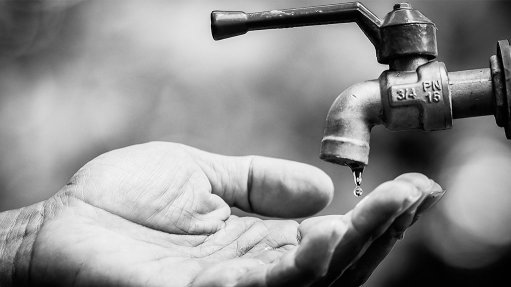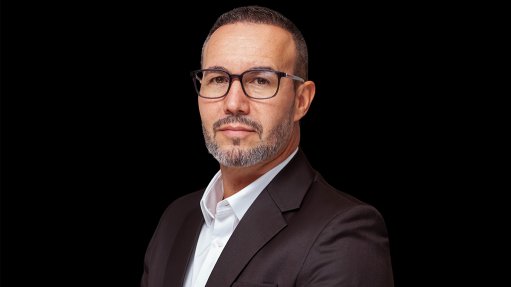After the dust settles: Uganda post elections
In this opinion piece, Africa Risk Consulting’s Tara O’Connor and Fiona Grant assess the post-election picture in Uganda, where long-serving President Yoweri Museveni won a sixth term at the helm and his ruling National Resistance Movement (NRM) once again secured a huge Parliamentary majority
The dust is settling following Uganda’s Presidential and Parliamentary elections held on January 14. The world watched, with difficulty, through a social media blackout as President Yoweri Museveni secured a sixth term.
His sixth term was enabled by an adjustment to the Age Limit Bill in 2017, which removed limits barring Presidential candidates over the age of 75. Museveni has executed a repeat performance of previous elections, continuing a pattern of reactive behaviour and deployment of security forces to ‘manage’ opposition party members and supporters. In past elections, the securocratic response typical of Museveni’s tenure used the Public Order Management Act rather than Covid-19 regulations; while the means has changed, the effect has not. Uganda’s 2021 elections were marked by illegal detentions, crowd control measures and creeping social media controls.
Some things have changed; Bobi Wine is now the undeniable leader of the largest opposition party in Parliament. The Forum for Democratic Change (FDC), formerly the largest opposition party in the Ugandan Parliament, passed the baton to the National Unity Platform (NUP) on January 15, well before the Electoral Commission announced the results of the Parliamentary elections on February 23. The NUP secured 57 of the 529 Parliamentary seats, a modest victory next to the incumbent NRM’s 336.
Despite Museveni’s re-election, cracks have appeared in the façade: it isn’t quite business as usual. The NRM faces trouble of its own making, a problem typical of leaders who aspire to lifetime rule. Uganda’s youth have become a demographic wave which even the strongest politician cannot resist. Ironically, it is a reflection of Uganda’s development process – arguably the success of NRM governance and policy. The population has grown, supported by a lower death rate, reduced infant mortality, better access to services, healthcare and education. But one-million Ugandans turn 18 every year to join the workforce and voting population.
Under- and unemployment in Uganda is a growing problem. Uganda’s youth are disenfranchised and disappointed by the government ‘myth’ of guaranteed upward mobility. Museveni has struggled to appeal to an audience 60 years younger; more trouble lies ahead. In an attempt to win the youth vote and bridge the age divide, Museveni opted to open his political rallies with pop concerts in 2011. This boosted youth attendance of NRM rallies significantly but unwittingly created the opposition figures Museveni feared. Wine is one of the musicians who was used to generate support for Museveni, but by 2016 Wine was a Member of Parliament. The NRM inadvertently managed to create a credible opposition and build the opposition’s support base.
So, Museveni finds himself in what one source called ‘enemy territory’, as the NUP secured seats in the central district, the home of the Ugandan government. His raft of confidants has begun to shrink, afloat in the sea of new opposition, as methods of controlling the NUP cause him to withdraw further and rely on a small, close and trusted circle. The circle is now almost exclusively family members. Despite the removal of Presidential age limits, confidence has waned within the NRM that Museveni can deliver a seventh election. He is rumoured to be positioning his son, Muhoozi Kainerugaba, for a dynastic succession. And one thing that the media-savvy youth of Africa hate is dynastic politics – as demonstrated by riots in Senegal over Abdulaye Wade’s attempts to promote his son, Karim, and chaos in Burkina Faso as Blaise Compaore fled after failing to impose a relative as his successor.
The arsenal available to the incumbent is broad. It includes tools of patronage, such as seats on Parliamentary committees, and sources say that illegitimate means, including bribery, may be used to tempt NUP party members to cross the floor, or into quiet submission. Extended talks on marathon topics including further decentralisation or federalisation are likely to be used as ‘time-wasting missions’ to occupy and exhaust opposition members. Finally, human rights violations, a hallmark of the securitised response, will continue under tighter social media restrictions. The opposition can do little in response, as they enter the controlled atmosphere of Parliament, where Museveni clearly feels at home. The primary challenge will be party unity and cooperation.
The 2021 election brought home the unsustainable nature of Museveni’s reign. His advancing age and wave of youth voters dissatisfied with the status quo are two forces which cannot be resisted. The cracks have appeared not just in the façade but the mechanism behind the maintenance of his power. In the latest election, Uganda’s police force refused to publicly confirm whether individuals, picked up by blacked-out vehicles (drones) from the street were in police custody. The reputational risk of claiming custody of someone who later appears badly beaten, or worse, is now too great. Similarly, the Ugandan military are rumoured to be divided on the topic of dynastic succession.
Looking forward, sources expect the new Parliament to be marked by profligate behaviour and looting of national coffers, as confidence in the security of Parliamentary seats wanes. The demographic pressure and wave of youth will continue to erode the support base of Museveni and the NRM. An increasingly isolated President, one prone to deploying an arsenal of unsavoury responses to enforce a dynastic succession, raises the risk that Uganda’s next transition will be violent at worst and chaotic at best.
Article Enquiry
Email Article
Save Article
Feedback
To advertise email advertising@creamermedia.co.za or click here
Announcements
What's On
Subscribe to improve your user experience...
Option 1 (equivalent of R125 a month):
Receive a weekly copy of Creamer Media's Engineering News & Mining Weekly magazine
(print copy for those in South Africa and e-magazine for those outside of South Africa)
Receive daily email newsletters
Access to full search results
Access archive of magazine back copies
Access to Projects in Progress
Access to ONE Research Report of your choice in PDF format
Option 2 (equivalent of R375 a month):
All benefits from Option 1
PLUS
Access to Creamer Media's Research Channel Africa for ALL Research Reports, in PDF format, on various industrial and mining sectors
including Electricity; Water; Energy Transition; Hydrogen; Roads, Rail and Ports; Coal; Gold; Platinum; Battery Metals; etc.
Already a subscriber?
Forgotten your password?
Receive weekly copy of Creamer Media's Engineering News & Mining Weekly magazine (print copy for those in South Africa and e-magazine for those outside of South Africa)
➕
Recieve daily email newsletters
➕
Access to full search results
➕
Access archive of magazine back copies
➕
Access to Projects in Progress
➕
Access to ONE Research Report of your choice in PDF format
RESEARCH CHANNEL AFRICA
R4500 (equivalent of R375 a month)
SUBSCRIBEAll benefits from Option 1
➕
Access to Creamer Media's Research Channel Africa for ALL Research Reports on various industrial and mining sectors, in PDF format, including on:
Electricity
➕
Water
➕
Energy Transition
➕
Hydrogen
➕
Roads, Rail and Ports
➕
Coal
➕
Gold
➕
Platinum
➕
Battery Metals
➕
etc.
Receive all benefits from Option 1 or Option 2 delivered to numerous people at your company
➕
Multiple User names and Passwords for simultaneous log-ins
➕
Intranet integration access to all in your organisation


















